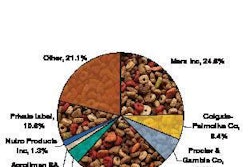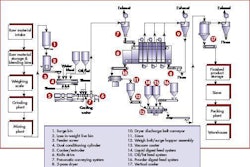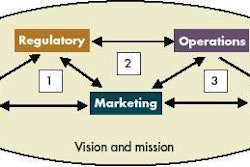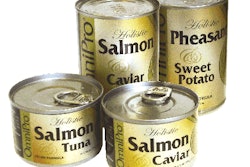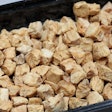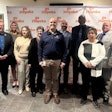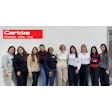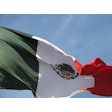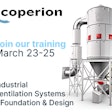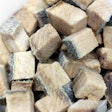.png?auto=format%2Ccompress&q=70&w=400)
Cargill is no newcomer to the petfood industry. It has been producing and marketing dog and cat foods under its River Run, Pro Premium and Nutrena brands since the early 1960s.
But with the launch of its new Loyall premium line, Cargill is positioning itself to become a "significant player in the US petfood business," according to Todd Hall, president of Cargill Animal Nutrition. "We see it as a natural offshoot because of the 80 years of expertise we have in the care and feeding of animals."
Loyalty from the get-go
Hall says the company started planning strategically about three years ago for a stronger role in petfood. That led to the promotion of Frank Ziacik to petfood category leader, Hall explains, with the purpose of developing and launching a premium brand.
That brand is Loyall, which Ziacik describes as being built on three pillars:
- Exclusivity to the agricultural retail (ag-retail) channel (feed and farm stores and similar outlets).
- A special, patent-pending process called Opti-Cook.
- Convenient packaging.
Ziacik cites the channel as the real driver behind the new line. "As we talked with our ag-retail customers, people we're selling Nutrena products to today, we realized they were frustrated with building brands of petfoods to see them go across the street to be sold at the 'big box' stores," he says. "So in combination with the feed products we were already selling them, we thought petfood would be a great fit to go with that line."
In fact, Cargill is so committed to giving this retail channel its own line that when asked if they would ever consider selling Loyall to a large pet store chain such as PetSmart or Petco, even if approached, the answer is immediate. "No," Hall says flatly. "We have products that we might put through a PetSmart today. But Loyall's not one of them. It's going to be very, very loyal to the ag-retailer segment." Ziacik adds that's part of the reason for the brand's name.
The Loyall line will be available across the US to more than 12,000 outlets in that channel. Cargill plans to expand distribution to several other countries within 12 months; it currently produces or sells its other brands, plus private label petfoods, in 20 countries.
Like mashed potatoes
The premium line consists of eight dry foods, including a cat and kitten formula. The seven dog foods cover lifestages and conditions such as puppy, professional, high performance, active adults, adult maintenance, lite, plus lamb meal and rice. Depending on the formula, ingredients include poultry protein and rice, natural preservatives and natural sources of glucosamine and DHA.
"The marketing feature we really think is unique to the product is a system we call Opti-Cook," says Mark Newcomb, PhD, technology manager.
With a patent pending, Cargill won't give details on its new process. To explain it, Newcomb uses the analogy of mashed potatoes. "We don't typically eat raw potato because a) it doesn't taste good and b) it can give you an upset stomach. And we all know that if you cook potato correctly it's good," he says. "However, if some people are like me, and they walk out and watch ESPN while the potatoes are cooking, and then you look at those potatoes later, they kind of have a plasticized look to them. Which is the starch in the potato becoming overcooked.
"Our Opti-Cook process is related, in that we're managing the cook correctly such that we don't undercook or overcook the food, but we process it for the optimum needs of the dog," Newcomb continues. That includes optimal quality and palatability.
Hall adds that Cargill sees the process as a way to set Loyall apart from the rest of the market. "We had done a lot of testing in the marketplace, and we found a large percentage of the petfoods we tested were either at the undercooked or overcooked stage," he says.
Newcomb seconds those findings. "Even within different batches of a product, you wouldn't see standardization, so you'd have a lot of variability in the cook, which we feel gives variability in the results your dog experiences. So the Opti-Cook process is designed to minimize that up-and-down characterization in the cook."
Consumer convenience
The third part of Loyall's positioning is its packaging: a poly-weave that's tear- and water-resistant, according to Ziacik. The bag features an easy-open sewn top that is also reclosable.
"When we talked to our consumers, one of the things people are still really looking for are packaging conveniences," Ziacik says. "And a July survey on your website backed that up; convenience still ranked number two when consumers talked about petfood purchases and what's important to them." (See www.petfoodindustry.com/viewnews.aspx?id=14842.)
No stopping now
Don't expect Loyall to be the only news or product announcement to come from Cargill over the next several years. "We are aggressively looking at developing international markets that we're in today," Hall says. "In Central America we're a leading marketer, but China is relatively new to us. So places like China are fertile ground for large petfood growth in the future. Eastern Europe would fall into that category."
Global expansion is just a start. "When it comes to innovation, we're not going to stop," Ziacik says. "Mark's team has so many things going Opti-Cook is just the first step."
"For me, it's exciting to be able to help translate what we know from 80 years of work feeding animals and understanding animal nutrition, and apply that to other species," Newcomb adds. "It's a fun thing technically and an exciting thing for the future."

